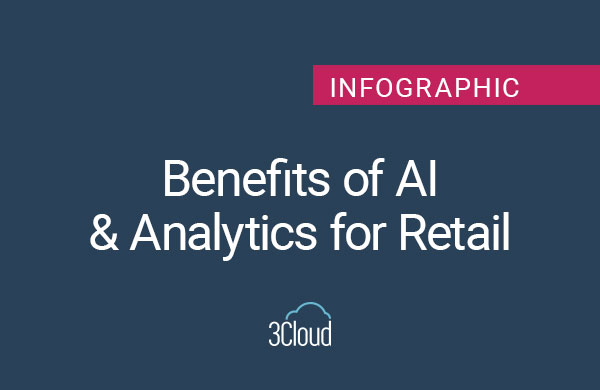Across every industry, digital transformation has become a critical factor for success today. What exactly is digital transformation? The term refers to the integration of digital technology into all areas of a business, fundamentally changing how organizations operate and deliver value to customers. Staying updated with digital transformation trends is essential for companies looking to maintain a competitive edge and drive growth.
This blog will explore what digital transformation entails, its importance for modern businesses and the emerging trends. We’ll dig into areas such as artificial intelligence (AI), Internet of Things (IoT), Virtual or Augmented Reality (VR/AR), data analytics, cloud computing, and more, providing insights and examples of successful initiatives.
Understanding Digital Transformation
Digital transformation is the process of leveraging digital technologies to create new, or modify existing, business processes, culture and customer experiences to meet changing business and market requirements. It goes beyond just adopting new technologies; it involves a comprehensive shift in how organizations operate and deliver value.
Digital transformation is crucial for several reasons:
- Efficiency: Automating processes and using data analytics can streamline operations, reducing costs and increasing productivity.
- Competitiveness: Digital tools enable businesses to innovate faster and respond to market changes more effectively.
- Customer Satisfaction: Enhanced digital experiences lead to higher customer satisfaction and loyalty.
Starbucks is a prime example of successful digital transformation. The company implemented a mobile app that allows customers to order and pay for their coffee in advance, leading to shorter wait times and improved customer experience. 3Cloud has helped countless clients on their digital transformation journeys. Read about how 3Cloud’s partnership with a leading credit union enabled their transformation journey to ensure optimal services for their customers.
Emerging Digital Transformation Trends
As we move through 2024 and beyond, several key trends are shaping the digital transformation landscape. Understanding these trends can help businesses stay ahead of the curve.
Digital Transformation + AI
Artificial Intelligence (AI) and Machine Learning (ML) are at the forefront of digital transformation. These technologies enable businesses to automate tasks and deliver personalized customer experiences. AI can automate routine tasks, freeing up employees to focus on more strategic activities. Machine learning algorithms analyze vast amounts of data to provide insights that inform business decisions.
Examples of businesses applying AI and ML include companies like Amazon, who uses AI and ML algorithms to analyze customer browsing and purchase history, providing personalized product recommendations to enhance the shopping experience. JPMorgan Chase uses AI and ML algorithms to analyze transaction data and identify patterns indicative of fraudulent activity. These systems can detect anomalies in real-time, reducing fraud losses and enhancing security.
Internet of Things (IoT)
The Internet of Things (IoT) refers to the interconnected network of devices that communicate and exchange data. IoT has widespread applications across various industries, from manufacturing to healthcare.
IoT is used in smart manufacturing for predictive maintenance, in healthcare for remote patient monitoring and in retail for inventory management. Across all industries, IoT enhances data collection and automation, leading to more informed decision-making and efficient operations.
Virtual Reality (VR) and Augmented Reality (AR)
Virtual Reality (VR) and Augmented Reality (AR) are immersive technologies that provide new ways to engage with customers and improve training processes. These technologies differ in that VR creates a fully immersive digital environment, while AR overlays digital information onto the real world.
Their applications differ as well, although crossover in certain areas. VR is used in areas like employee training simulations, AR in marketing campaigns, and both are used in customer engagement initiatives. Looking to the future, these technologies are expected to become more integrated into daily operations, offering innovative solutions for various business challenges.
IKEA uses AR through its IKEA Place app, which allows customers to visualize how furniture and home decor items will look and fit in their homes. Customers can use their smartphone cameras to place a 3D model of an item in their living space, allowing them to make more informed purchasing decisions.
Data Analytics Role in Digital Transformation
Data analytics play a crucial role in digital transformation, enabling data-driven decision-making and providing insights that drive business strategies. By analyzing data, businesses can identify trends, optimize processes and improve customer experiences.
Retailers use data analytics for demand forecasting, while healthcare providers analyze patient data to improve outcomes. See how a healthcare provider accurately forecasted nurse scheduling gaps.
Cloud Computing
Cloud computing allows businesses to store and access data and applications over the internet, offering scalability and flexibility. Cloud solutions enable businesses to scale operations, reduce IT costs and increase collaboration.
A growing trend is the adoption of hybrid and multi-cloud environments as well as integrating with AI and IoT for enhanced capabilities.
Digital Transformation Strategies
Developing a comprehensive digital transformation strategy is essential for success. This strategy should align with business goals and models, ensuring a cohesive approach. When developing an effective strategy, there are some important steps to follow; start with a clear vision, assess current capabilities, define a roadmap, invest in the right technologies and foster a culture of innovation within your organization.
3Cloud provides valuable experience and expertise in helping businesses navigate their digital transformation journeys. Our team of experts can help you with your digital transformation initiatives and plan a path to success.
Digital Transformation Initiatives
In order to stay competitive, many companies have successfully implemented digital transformation initiatives across various industries. Success often hinges on strong leadership, a clear strategy and continuous innovation.
Companies like GE are using digital twins and IoT for asset performance and predictive maintenance. Amazon leverages AI and data analytics to optimize supply chains and enhance customer experiences. Learn how 3Cloud used AI to help a large accounting firm to slash work-hours on manual tasks by 89K hours annually. Plus, discover how a chemical company saved millions after 3Cloud empowered them with IoT and Power BI to improve operational efficiencies.
Overcoming Challenges in Digital Transformation
Digital transformation is not without its challenges, including legacy systems and resistance to change. Some common challenges include integrating new technologies with existing systems, addressing skill gaps across an organization and ensuring data security. Some strategies to overcome these challenges involve investing in employee training, prioritizing cybersecurity and maintaining a flexible, adaptive approach to change.
The Role of Emerging Technologies in Digital Transformation
Emerging technologies like AI, IoT and VR are driving digital transformation by providing new tools and capabilities. Successfully integrating these technologies requires a strategic approach, aligning them with business objectives and existing processes.
Real-time data analytics, automated workflows and immersive customer experiences are just a few of the benefits.
The Future of Digital Transformation
Looking ahead, digital transformation will continue to evolve, driven by new technologies and changing business needs. Just a few of the future technologies creating a buzz include:
- Quantum Computing: While still in its early stages, quantum computing promises to solve complex problems much faster than classical computers. It has the potential to revolutionize fields like cryptography, materials science and drug discovery.
- 5G Technology: The rollout of 5G networks offers significantly higher data speeds, lower latency and greater connectivity. This will enable more advanced applications in areas like IoT, augmented reality (AR), and virtual reality (VR).
- Robotic Process Automation (RPA): RPA automates repetitive tasks and processes, improving efficiency and accuracy. The integration of AI with RPA (Intelligent Automation) is pushing the boundaries of what can be automated.
Digital technology’s role in business is rapidly evolving, becoming the foundation of strategic planning and operational efficiency. This digital shift is enabling companies to make decisions using more data, improve agility and create new business models, ultimately transforming how they operate and compete in the market. As technology continues to advance, its integration into every facet of business will only deepen, further shaping the future of commerce and industry.
Conclusion
Staying informed and proactive is essential for businesses to remain competitive and thrive. By embracing the latest trends and technologies, companies can enhance their operations, improve customer experiences and drive business growth. Companies that don’t plan for and embrace digital transformation, will be left behind.
Are you ready to start your digital transformation journey? Contact us to start the conversation around your digital transformation initiatives.




